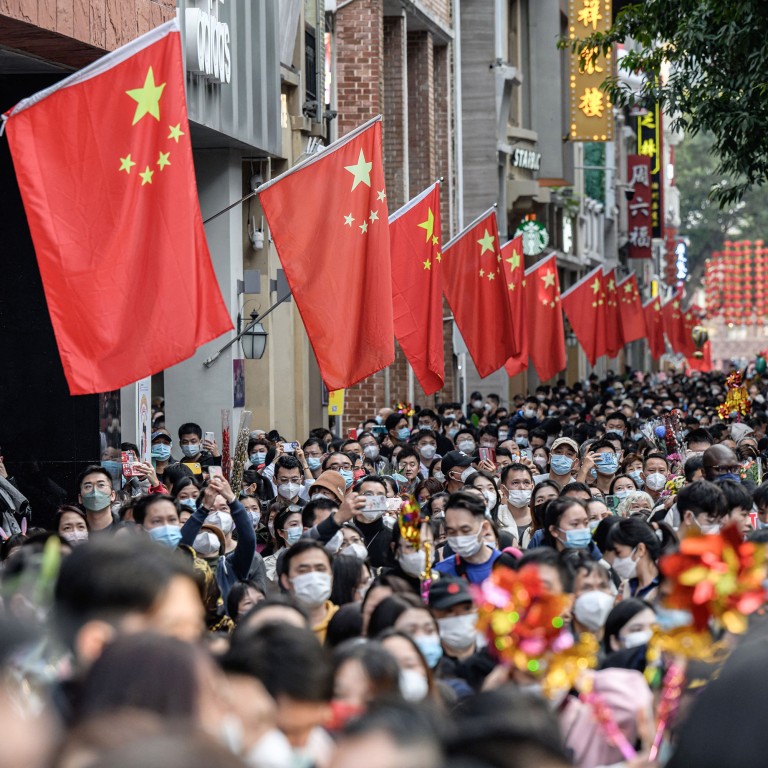
China’s long-term future with Covid-19 will depend on accurate data
- Temporary herd immunity has given Chinese health authorities time to prepare for the next wave, whenever that may be
- A detailed vaccination and treatment path will be vital, but only if it is based on reliable information about Covid-related deaths
Beijing CDC deputy director Wang Quanyi said a serum survey will determine antibody levels among the city’s residents, to help formulate its response to further outbreaks.
This kind of survey is common after a wave of infectious illness, to assess the number of people affected and overall levels of immunity, but it is not the only information needed when preparing future policy.
Without reliable data on Covid-related deaths, it will be impossible to gauge the full impact of the outbreak or the effectiveness of vaccines and treatments.
While China has released data on deaths, severe cases and hospitalisations in the wake of mounting international pressure – including requests from the World Health Organization – many international experts doubt its accuracy.
They point to China’s definition of Covid-related deaths and the number of tests performed, as well as reports that doctors are discouraged from putting Covid-19 as the cause of death when a patient has other underlying illnesses.
WHO chief calls on China to give more details on Covid cases and sequences
When mass travel at the end of January for the Lunar New Year holiday did not bring the second wave that some mainland scientists were worried was coming, officials and state media were quick to report a dramatic drop in severe Covid-19 cases and deaths.
The National Health Commission recorded almost 60,000 Covid-related deaths between December 8 – when China scrapped mass testing and daily reporting of Covid-19 numbers – and January 12.
Since last month’s peak, China reported a nearly 90 per cent drop in Covid-19 deaths and severe cases among hospital patients on February 1 .
While Chinese state media is relaying a message that the worst is over, some scientists are now predicting another wave in three to four months, when the population’s immunity wanes, but with mild symptoms for most people.
It is important that China grasps this window to ramp up preparations by stepping up its vaccination of the elderly, such as by making it easier for older people in the countryside to get vaccinated.
Why has China struggled to vaccinate the elderly against Covid-19?
In the US, for example, the Food and Drug Administration is discussing new vaccination paths, including what formulation to use and what interval between shots will be most effective.
China and other countries will have to come up with similar long-term vaccination policies, which cannot be done effectively without robust research and data.
As China does not want to import BioNTech mRNA vaccines, it will have to rely on its own data to develop a vaccination programme. How well Chinese vaccines protect the elderly and those with underlying diseases will be crucial information.
Immune imprinting makes some Covid-19 booster shots less effective: study
Stockpiling treatments and making resources available to even the most remote areas will also be key in helping the country to weather future waves of Covid-19.
In February last year, China approved US firm Pfizer’s oral treatment Paxlovid, which has been shown to reduce hospitalisations of high-risk patients by 90 per cent. While the drug is now covered by a basic insurance scheme, Chinese authorities said that will end in March because the company’s quoted price was too high.
China appears to be trying to fill the gap with oral treatments developed locally, but their effectiveness in the real world remains to be seen.
As Covid surges in China, hopes for lower Paxlovid prices fade
On another front, a group of Chinese scientists called for China to establish a long Covid support platform, in an article published by The Lancet on February 4.
“As the most populous country in the world, China is at acute risk of national crisis on account of long Covid,” they wrote.
China missed much time last year without formulating an exit strategy from zero-Covid. It now needs to develop a consistent healthcare policy with the foresight to determine how the country will live with the virus in the long term.

